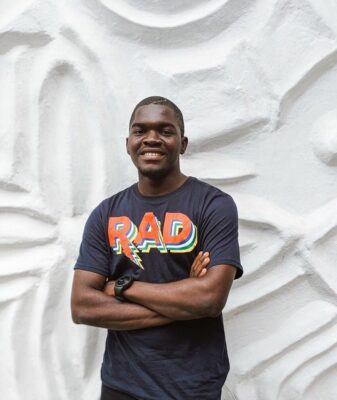
Photo credit and permission provided by Ọpẹ́yẹmí Adémọ́lá.
This post is part of a series of interviews with our guest hosts of the @DigiAfricanLang [1] rotating Twitter campaign at Rising Voices.
Last week, we were joined by Ọpẹ́yẹmí Adémọ́lá, a project manager in the language industry. As a native speaker of Yòrúba, one of many languages spoken in Nigeria and Western Africa, Opeyemi works as a content developer for Nigerian language learning platform Sorolingo [2]. You can find Ọpẹ́yẹmí on Twitter @ [3]opeyemioab [3].
Rising Voices (RV): Please tell us about yourself and your language-related work.
Ọpẹ́yẹmí Adémọ́lá (OA): My name is Ọpẹ́yẹmí Adémọ́lá — I am a researcher and project manager in the language and tech industry.
My work involves the creation of a digital product in and about the use of different African languages, but most importantly in Yòrúba. I also work in the development sector where I have gained excellent knowledge and experiences of the distribution of vital information in different languages to tackle social issues and abuses.
I'm also responsible for the creation of workflows in the tech part, which means I oversee different departments and projects as a Project Manager.
RV: What is the current state of your language both online and offline?
OA: I'm a native speaker of Yòrúba. The language is rich, with over 44.4 million native speakers. I truly believe the language can't die with the help of tech support and investors who are interested in the development of languages in Edtech.
RV: What are your motivations for seeing your language present in digital spaces?
OA: For someone interested in products, this has always been a big part of my work. I want more people to recognise the value of the language through digital products which is a big motivation for me.
RV: Describe some of the challenges that prevent your language from being fully utilized online
OA: There are lots of challenges, but a major one for me is a sense of community and the right channels to get funds, learn well and build more efficient products for people aside from just teaching them the language.
RV: What concrete steps do you think can be taken to encourage younger people to begin learning their language or keep using their language?
OA: It is important to build more products. Young people are very curious and they express themselves through the things they see and observe. We read product manuals in English every day — this means we need more digital and non-digital products in our languages.